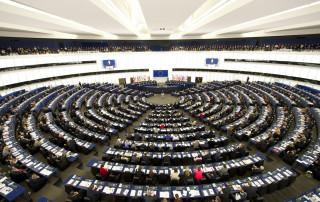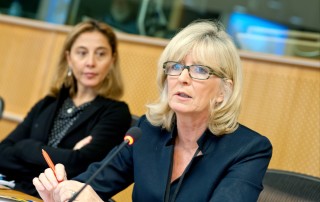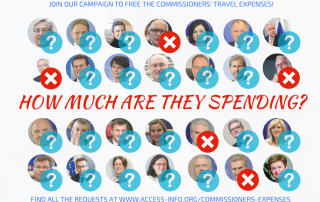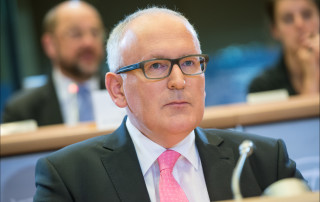ADVOCATING FOR GREATER TRANSPARENCY IN THE EU
WE SHINE A LIGHT ON EU INSTITUTIONS AND DECISION MAKING
WE PROMOTE TRANSPARENCY IN EU DECISION MAKING...
since citizens have the right to know about how decisions are takenWE TACKLE THE
ABUSIVE APPLICATION
OF EXCEPTIONS...
because only in limited cases should the EU apply exceptions to access WE CHALLENGE
PRACTICAL OBSTACLES TO
ACCESS INFORMATION...
so that submitting requests is simple and straightforward for everyoneOUR LATEST UPDATES ON EU TRANSPARENCY
European Parliament Committee supports increase in decision-making transparency
Madrid, 22 March 2017 – Access Info Europe has cautiously welcomed this week’s adoption of the report on ‘Transparency, accountability and integrity in the EU institutions’ by the European Parliament Constitutional Affairs Committee. The report by Sven Giegold MEP takes important steps to improve record keeping and decision-making transparency by calling for the Council to publish the position of member
Parliament inaction on lobby transparency could sink register reform
[Article first published by the ALTER-EU] Madrid/Brussels, 17 March 2017 - The European Parliament must do more to improve lobby transparency, 100 civil society organisations urged in an open letter published today. MEPs were warned that the European Commission's current proposal for a revised EU Transparency Register would allow for even less scrutiny than the existing one, and that to
Enquiry about legislative transparency in the Council welcomed by Access Info
Madrid, 14 March 2017 – Access Info Europe today expressed concern over insufficient record keeping in the Council of the EU and welcomed the launch of the European Ombudsman’s strategic enquiry into transparency of one of the EU’s key decision making institutions. A focus of the Ombudsman’s enquiry is whether the Council is complying with a 2013 judgment of the
Commissioners’ Expenses Campaign Update: EU continues to refuse to recognise requests
Madrid, 10 March 2017 – Access Info Europe today condemned the European Commission’s refusal to process 189 requests for data on EU Commissioner’s travel expenses submitted by 120 people in January 2017. In a formal complaint sent today, Access Info alleges a serious violation of the access to documents rights of these 120 individuals by lumping all 189 requests together
Why is the European Commission not publishing reports on Corruption in the 28 Member States?
Madrid, 3 March 2017 – Fourteen (14) of Europe’s leading transparency organisations today submitted a formal request for EU documents in an attempt to understand what lies behind the European Commission’s surprise decision not to publish the EU Anti-Corruption Report, which was originally scheduled for publication in 2016. The unexpected decision to permanently shelve the second edition of the EU
European Parliament votes in favour of stronger EU-wide beneficial ownership transparency rules
Madrid, 1 March 2017 - Access Info Europe has welcomed yesterday’s vote by the European Parliament’s Economic and Monetary Affairs and Civil Liberties committees to strengthen beneficial ownership transparency rules across the European Union. The amendments to the EU Anti-Money Laundering Directive agreed by MEPs would mean EU citizens could access registers of beneficial owners of companies and trusts without







